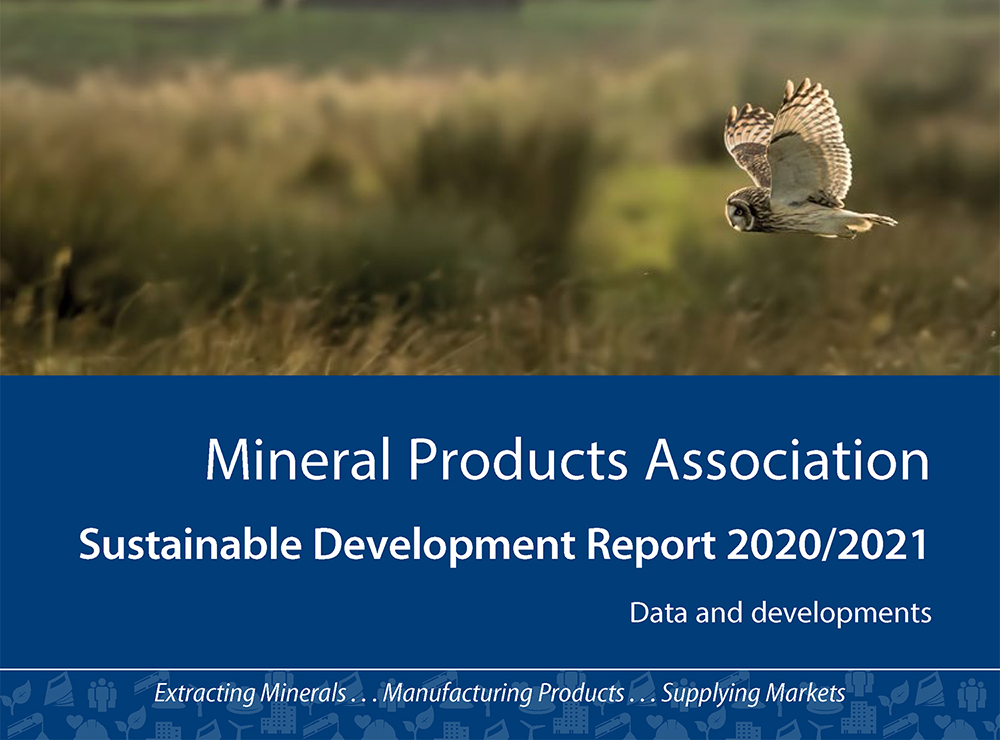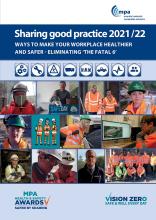
Whether it’s putting into action the UK concrete and cement sector’s Roadmap to Beyond Net Zero or celebrating 50 years of successful quarry restoration and an unrivalled legacy of biodiversity gain, the new document outlines the sector’s commitment and tangible progress towards sustainable development.
The report features key industry achievements over the period, including the MPA-led world-first trials that proved cement can be made with net-zero fuel by using hydrogen and biobased fuels. Other sustainability highlights across the MPA’s seven strategic priorities include:
HEALTH & SAFETY
- Roll-out of ‘Vision Zero’, the industry’s 5-year health and safety plan.
- Fewer lost-time incidents (LTIs) relating to ‘The Fatal 6’ greatest risks.
- Joining 50 other organisations for the #RespectTheWater national campaign.
PEOPLE
- Over 450,000 hours of formal training delivered to industry employees.
- Growth of the MPA Good Neighbour Scheme for communities near quarries.
- New regional liaison network for marine aggregate operators.
RESOURCE USE
- Recycled & secondary aggregates among highest in Europe at 28% of total.
- Almost half of all fuels used in cement-making are now derived from waste.
CLIMATE CHANGE & ENERGY
- Actioning the ‘UK concrete and cement Roadmap to Beyond Net Zero’.
- BEIS-funded world-first trials on cement manufacture using net zero fuel.
- Becoming the largest user of rail freight in terms of ‘tonnes carried’.
NATURAL ENVIRONMENT
- Leading conservationists joining MPA to mark 50 years of restoration awards.
· More than 110,000 indigenous trees and 7km hedgerows planted in 2020 alone.
· 99% of MPA members now have an Environmental Management System in place.
BUILT ENVIRONMENT
- 90% of quarries operate under BS EN ISO 9001 (Quality Management).
- 100% of reported aggregate production certified ‘very good’ or ‘excellent’ under BES6001 (Responsible Sourcing).
INDUSTRY VALUE
- The mineral products industry contributes c£16 billion to the UK economy.
- 28,000 employed directly by the industry (and 81,000 in associated sectors).
- Industry productivity rates are 20% greater than the national average.
Nigel Jackson, CEO of the MPA, said: “Despite supply chain bottlenecks, shortages of some materials and soaring energy prices – not to mention the ongoing pandemic restrictions – I am proud that the mineral products industry has, once again, made excellent progress in sustainable development.
“Few industrial sectors have been reporting publicly on sustainable development for as long as we have over the last 12 years. And each year, our members continue to deliver improvements across the MPA’s seven strategic priorities as we make progress towards achieving our vision for 2025.
“Not only is this industry supplying essential materials in the most sustainable manner achievable today, but companies are investing in innovations and initiatives to achieve total sustainable development in the future, whether that’s in renewable energy, resource efficiency, nature recovery or countless other areas.
“The mineral products industry is responsible for the biggest flow of materials in the UK economy – around 400 million tonnes each year – around half of which is used for Government-backed construction projects, such as infrastructure, housing and renewable energy schemes. The fact that we also operate to standards that place the UK in the top tier globally is worthy of greater recognition and appreciation, particularly by Defra. They continue to show little or no interest in the contribution we make to nature no matter how hard we try. Not only is this deeply frustrating, it is inexplicable and inexcusable.”
The MPA Sustainable Development Report can be found here.










